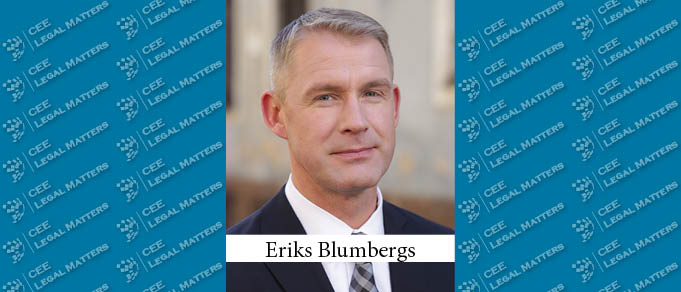The pandemic-related consequences and the reluctance of Scandinavian funds to invest in the Baltic states, with Latvia being considered a potential war zone, led to the re-evaluation of the country's most active sectors, according to Triniti Latvia Director of Business Development Eriks Blumbergs.
"During the COVID-19 years, commercial real estate was a hot topic," Blumbergs begins. "There were a lot of real estate transactions, with new funds investing in building different spaces. However, this year, we see a re-evaluation in the real estate market. The pandemic-related consequences of offices not being at full capacity, together with the reluctance of Scandinavian funds to invest in the Baltic states, have led to the suspension of new real estate projects. Unfortunately, we are considered a potential war zone with a probability of some incident occurring in the future."
Blumbergs says that "financing is another sector where the tide is turning. We used to be a crossroads and a bridge between the EU and Russia. Now the war is having an impact on banks, especially in Latvia." According to him, the need to carefully vet clients and many businesses with frozen accounts keep lawyers busy. "On the other hand, non-bank financing is flourishing. From fintech to payday loan providers, companies are doing well and some of them have even increased their portfolios, despite the uncertainty," he notes.
The geopolitical turn of events, Blumbergs adds, has caused the energy sector to be put on high alert. "The gas tariffs are expected to be doubled by the end of the year," he explains. "Law firms are working on different compliance requirements to address how to re-index prices. This led to a switch to renewables and the fast-tracking of construction of any large-scale wind park imaginable," he says.
Blumbergs says that there are a few legislative proposals debated at the moment to find the right balance between public and private interests. "For instance, the removal of the environmental impact studies requirement has been suggested for wind farms exceeding 50 megawatts. Of course, the idea of abandoning all measures was followed by a backlash," he says. "The additional legislative proposals suggest allowing the construction of wind parks in forests and establishing offshore wind farms with Estonia in the Baltic sea."
All of this, Blumbergs notes, has created a number of challenges, such as the absence of a relevant legislative ground to register real property at sea. "This summer, we expect a panel discussion among lawyers to settle some legal debates," he notes. According to him, "these days, many interest groups are hiring law firms on advising the government, to not end up having investment disputes. Lawyers, usually sitting on the side of private industry players, are now addressing the complex tasks of public interest."
Finally, Blumbergs says that the recent reforms related to municipalities are a challenge for every lawyer. "Initially, Latvia was split into smaller regions, but now they have been merged for reasons such as economic efficiency," he says. "This has created ambiguity about territorial planning, which is a crucial question for investors. The current zoning in most municipalities will be effective until the end of 2024, and we have no clear guidelines about what to expect afterward," he concludes.
















